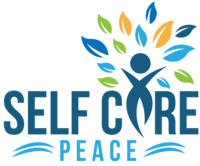A journey of a thousand miles begins with a single step. Heard that before? Sure, you have, but I bet you thought it was Confucius who said it, right? Well, it’s not. It’s actually a contemporary of Confucius, a fellow called Laozi. How’s that for a useless piece of tourist information?!
But those are the words I wanted to begin this post with because it’s really apt. Your journaling journey, like the journey of a thousand miles, will indeed begin with a single step. And, hopefully, from there it will gather momentum and end up a fun-filled, deeply satisfying, and gratifying journey of a thousand pages.
So much has been written about the incredible healing and balancing power of journaling and its astonishing ability to change lives, it’s hard to think of something to add – except this: if you come across something positive about journaling while browsing the Internet, it’s probably true.
Those are fighting words, I know. Especially since the Internet is notorious for sub-grade information and just plain misinformation at the best of times. But this is one instance where you can trust (most of) what you read.
Put the why before the how

One of the reasons for this is that academics, researchers, psychologists, and psychiatrists have all jumped onto the bandwagon. The shrinks are fascinated by the therapeutic value of journaling, and the academics and researchers are obsessively curious about why it works.
Both of these are good things!
The researchers and academics tell us, based on the results of their studies, journaling is good for (and this has all been proven, btw):
- Your immune system’s general resilience
- Your self-esteem
- Mindfulness
- Record keeping of your thoughts and feelings – this has great therapeutic value
- Discover your deep inner voice – ditto for the therapeutic value and more
- Your sense of gratitude – ditto again
- Boosting your creativity
- Recovery after traumatic events
- Reducing symptoms of depression
- Problem-solving ability
- Mood stabilization
- Achieving goals – mental or physical
- Memory improvement
- Better sleep
- Improving communication skills
- Your ability to learn
- Stress and anxiety reduction
- Physical healing
- More
Okay, I know, that’s a mouthful. And that’s just what the researchers and the academics say, based on the outcomes of their scientific studies.
But what about the psychologists and psychiatrists. What do they say? Simple. Just read through the above list again. Because they say exactly the same.
Now, if you still want to argue the point about trusting the Internet on the topic, just do a quick Google search. Find the topic, and see what any given article says. Dollars for doughnuts, it will tell you the same thing.
AND. THAT. IS. RARE!
Betcha when you were reading through the list there were one or more of the bullet points that deeply resonated with you, right? It’s really so with all of us. That list contains at least one item (mostly more) that we see as areas in our lives that can do with a little sprucing up.
And that should be your motivator. That’s what should make you reach for your pen and spiral-bound and shout: “Fire in the hole! Journal writer coming through!”
Why it matters and how it doesn’t

The most important aspect of journaling (for me personally) is how it puts me in touch with the real me inside. Not the mentally and emotionally, often haggard creature that often strides through life rather robotically. But the:
- deeply emotional,
- spunkily intellectual,
- shyly opinionated,
- often castigated,
- sometimes elated,
- occasionally pained,
- but always flesh-blood-spirit me.
The original, authentic item, void of fraud and pretense.
This matters because, without my journal, I’d hardly ever see her. I’d know she was there, to be sure, but she’d have very few opportunities to make her voice heard, to give her opinions, or to share her guidance.
Why journaling doesn’t matter (in the general privacy sense) is that it’s for your eyes only. Think about it. That inner you – the one we’ve just spoken about – who but you will fully understand what she has to say anyway, right? For the rest of the world to get her, you’d have to translate her into people-speak in some way or another.
YESSSS! But how would you know what to translate if you don’t listen to her first!
I digress. So, your journal is for your eyes only. No dragging your deepest, most horrifying secrets kicking and screaming into the light for all to see, like you would on a psychiatrist’s couch. Oh no, not here. This is your journal (whether you do it with a pen and paper, or whether you use one of the great apps) and you. Just the two of you.
Or one of you, depending on how you look at it.
It’s you speaking, and more importantly, it’s you HEARING your voice.
About time, don’t you think?
What is this strange magic they call journaling, master?

Journaling is everything you write down with yourself as the recipient. Period. (Okay, maybe your shopping list doesn’t count).
It’s not a requirement to write reams of poetry, or the lyrics of country songs, or a new derivative of 50 shades, although all of those would be fine too.
Journaling is really little more than setting a bit of time aside JUST for you – a quiet period where you can focus on the ebb and flow of your own thoughts and emotions, peer in behind the veil, and ask: how are you doing today. And then writing the answer today-you gives down, so tomorrow-you can read it. Done and dusted.
- It can be a simple blow-by-blow account of your day.
- It can be a recounting of a pleasant/unpleasant event.
- It can be the way the sunlight reflected off a chimney.
- It can be anything that got your attention, but that you didn’t have enough time to PAY attention to at that moment.
In my journal, there’s no happy medium. Some days are pages and pages of deep insights and creative thoughts. The words just flow and the paper never seems to be enough.
Other days are a few words.
It doesn’t matter.
Here are a few tips to get you started, and to keep you going:
Get started and keep going!
1. Make it a part of your day
This is my favorite – and I always start with it if I’m asked about journaling. It’s about your day, after all, isn’t it? So, whether you journal on an app, or whether you carry a little notebook, be the investigative journalist chasing a story about your own life. If something interesting happens, jot it down. Later, when you use the time you set aside to journal, think about it and incorporate it in your entry! It’s FUN with a capital F!
2. First thing in the morning
I love doing a bit of journaling just after I’ve woken up. Granted, I don’t do it every day, but when I do it, I LOVE it. You know that slightly misty feeling you have first thing, even before you’ve had your first coffee? Well, let me tell you, that’s a fogginess where BIG truths live. It’s located halfway between sleep and awake, so you get the best of both worlds. Try it! You won’t be sorry!
3. Shorthand the crap out of it
Remember what I said about “for your eyes only”? Well, your eyes, your shorthand. Don’t worry about using sentences. Hell, don’t even worry about using words if your own abbreviations will suffice. If your thoughts flow faster than your writing hand or keyboard can keep up, shorten it so it fits you – not you fit it!
4. App it
Technology is – say it with me – G.R.E.A.T.
If you’re busy, or if you’re not the writing type, or if you can’t be bothered to get organized, how about using an app?! These nifty little software munchkins will do all of that for you. What I do OFTEN, is I do the day’s entry as an audio file.
Here’s how it works:
- I start EVERY journaling session with a little breathwork. Breathe in for four seconds, hold your breath for seven seconds, and breathe out for five seconds. Repeat at least thrice.
- When my mental and emotional clutter starts to clear a little and my inner-being starts to join me in the flow, I start.
- I use an app to record my thoughts as I speak them freely!
The brilliant thing here is that I don’t edit like one does when one is writing. When I record, it’s 100% free-thinking, 100% free speaking, 100% free me. And it all goes into the app as my journal entry for that day.
Nifty, right?!

5. Get creative with templates
Hemingway was besotted with bullfighting. And with writing. He once called the blank page “The White Bull”, and it’s probably so for everyone that has ever tried to write anything more serious than Post-it notes.
So, how do you overcome your fear of the blank page (and, heck, I know how intimidating it can be …)? Why, you jolly it up a little!
Make it look nice, work on it until you have it just right, and then use the same template every day.
What about giving it a heading or two. Three things I’m grateful for today. Three things that made me happy today. Three things I want to think about today.
You get the drift. Be creative. It’s part of the fun.
6. Use a desktop calendar
I’m talking about either the old-school paper version or the modern-day electronic version. It matters not.
What matters is that you have your days demarcated already, you have space where you can write. All that is left, is to drop the clutch, press the accelerator, and floor it.
Couldn’t be easier, especially if you’re in a hurry!
7. Collect prompts throughout your day
This is where a little notepad or an app on your phone comes in handy. When you see something interesting, make a note. Later, when you sit down to write, use it as a prompt and see where it takes you. You’ll be surprised to see your own opinions materialize right in front of you.
Personally, I believe I’ve become an infinitely more interesting person since I started journaling. I think so, and I don’t give an ounce of feathers what others think.
8. Do it as frequently or infrequently as you want
People will tell you to journal every day. And there’s value in that. But it’s not the only way to do it – by a long shot.
What about journaling once a year – let’s say on New Year’s day or on Christmas Day. Then you have a whole year’s worth of material, including your own growth and inner development to pour out onto the page.
Or, once a month.
Or on your birthday.
It matters not how often or how much – it just matters that you do!
A story of how it changed a life
Let me tell you the story of Angela Carter.
Angela arrived home from work shortly before Christmas, around a year before she got divorced. She’d left work early because she wanted to surprise her husband. She’d even bought new lingerie for the occasion …
She caught her husband cheating. In her house. In her bed. With her best friend.
The world dropped out from under her, as both you and I can understand.
From there, Angela went through hell, but she never gave up.
She:
- Bought courses
- Enrolled in courses
- Spent time with gurus
- Felt like giving up
- Started again
- Felt like giving up again
And then she made a major breakthrough – one that changed her entire life journey.
You can find Angela’s story by clicking the button below. Spend time with it. If you need inspiration – this is where you’ll find it. And a whole lot more!

